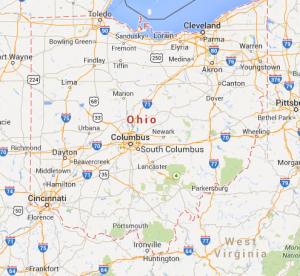On the Other Hand—the Jesus Hand
By Deb Crowley of Urbandale, IA, USA

[Happy are those] who execute justice for the oppressed; who give food to the hungry. The Lord sets the prisoners free; the Lord opens the eyes of the blind. The Lord lifts up those who are bowed down; the Lord loves the righteous. The Lord watches over the strangers; he upholds the orphan and the widow… Praise the Lord! —Psalm 146:7–9 NRSV, adapted
Until a breakfast conversation with my three-year-old granddaughter, I didn’t know there were such choices as “Barbie” waffles. Grammy is out of the loop on waffles, but not on manners or understanding of a healthy breakfast for a child. Training continues as I prompt her, “How do you ask?” or “What do you say?” after receiving her food. At this point she responds, “Please, I need Barbie waffle!”
My granddaughter sparked an examination if what we want is what we need. As a society the media bombard us with advertisements and hype. They try to convince us we need the latest, fanciest cell phone, digital television, super-sized French fries, or a designer handbag. Somehow shallow wants become needs.
Unfortunately, there are a few who feel, “If I can’t afford it, someone else should supply it for me!” Before charities give aid to people needing money for rent or utilities, they require them to work with a counselor or minister who examines their budget to see how to best handle money to prevent future shortages. It is sometimes difficult to help them understand that cable television is not a basic living need or a leased car may not be the most economical means of transportation.
On the other hand—the Jesus hand—Jesus taught us to love one another, feed the hungry, house the homeless, and care for the ill and afflicted. No “buts” or “only-ifs.” Jesus, as well as today’s Psalm writer, doesn’t say to give only to those who deserve it or to those considered worthy. He simply says if someone has no food, feed them. If a person has no place to sleep, provide a bed. If a child is ill, get him to a doctor. No examination of their budget, no critique of their lifestyle, and no judgment on how they are dressed, how they smell, or what color their skin might be. Yes, they may “want” without saying please and “take” without saying thank you. But, giving that comes from a spirit of love and generosity needs no recognition. God knows.
There is a reward at the end of a long, exhausting day of reasoning with a three-year-old about what she needs versus what she simply wants. My heart sings with joy as she wraps her little arms around my neck and exclaims she loves me.
What greater reward at the end of a life generously shared than a greeting from God with a big bear hug and hearing the words, “Well done, my good and faithful servant!”
Prayer for Peace
How happy we should be, God, that we don’t have to qualify for your love. How comforted we should we be that we don’t need to deserve the compassion you give. May we give out of our God-reflected wisdom and generosity without expecting recognition from others. We have you.
Spiritual Practice: Hunger Action
Compassion is a fruit of the spiritual life. When we open a space for God, we become vessels and channels for the flow of God’s justice and healing. Enter into quiet prayer and ask God to open your heart to those who are hungry. Of what spiritual and physical hungers do you become aware? What people or groups come into your mind and heart? What responses does God’s Spirit invite you to make? Pray about and write down the response or action you choose to complete. Is it a phone call, a pantry donation, a check to support the World Hunger Fund or Outreach International, a visit? Move into completing this action as you leave your prayer space.
Peace Covenant
Today, God, I will be satisfied that you alone know about the good I have done.



